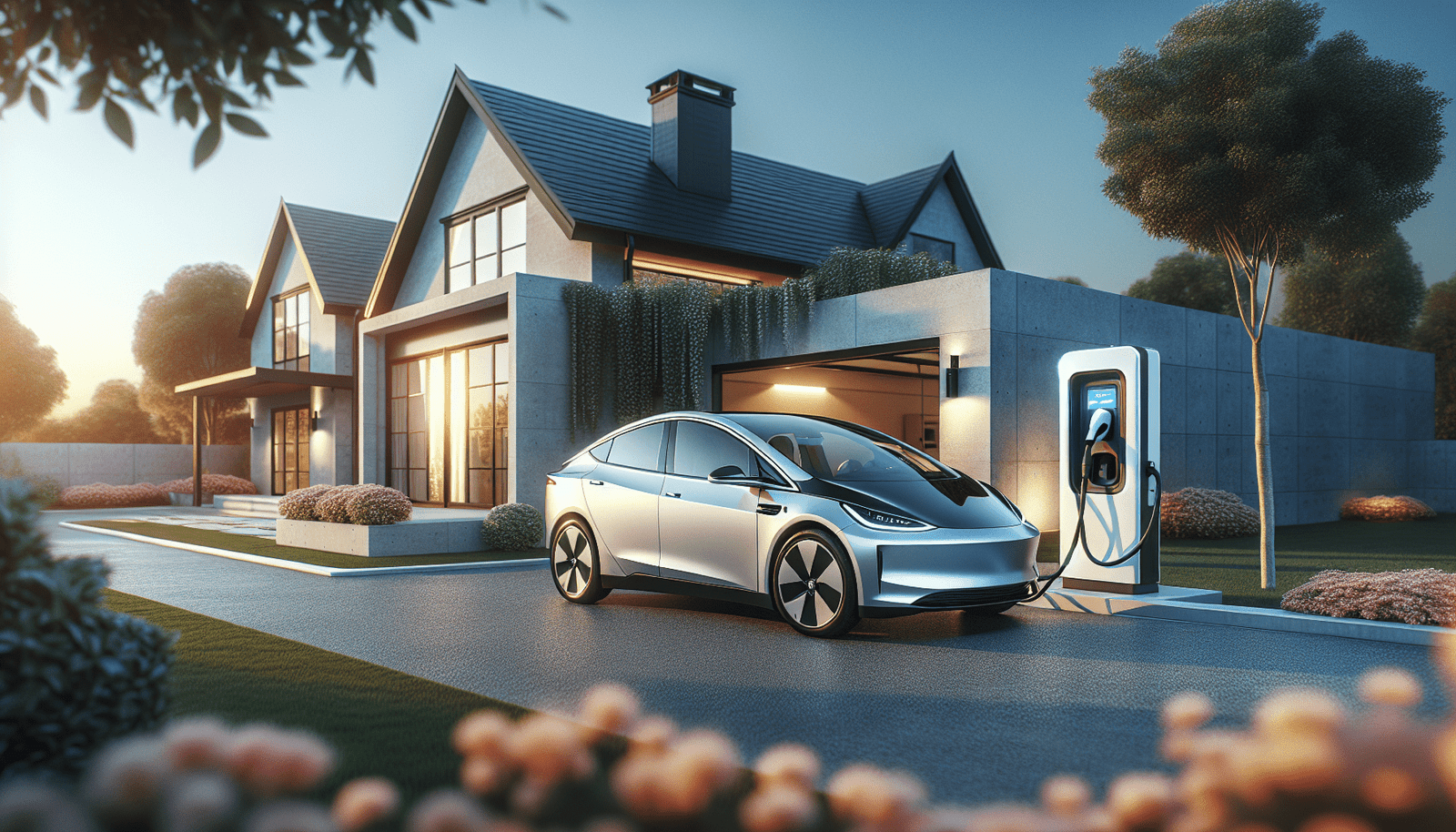If you’re considering purchasing the Hyundai Ioniq 5, you’re probably wondering if you can charge it at home and what type of charger you’ll need. Well, good news! The Hyundai Ioniq 5 can indeed be charged at home, and the type of charger you’ll require depends on your needs and preferences. Whether you’re looking for a faster charging option or a more convenient and portable solution, there are a few different choices available to ensure you can power up your Ioniq 5 wherever and whenever you need to. So, let’s take a closer look at the options and find the perfect charging solution for you!
Charging the Hyundai Ioniq 5 at Home
Owning an electric vehicle (EV) like the Hyundai Ioniq 5 brings many advantages, including the convenience of charging at home. With the right charging equipment, you can ensure that your Ioniq 5 is always ready for your next adventure. In this article, we will discuss the availability of home charging, the benefits it offers, and the different types of chargers suitable for the Hyundai Ioniq 5.
Availability of Home Charging
One of the greatest benefits of owning an electric vehicle is the ability to charge it at home. Home charging provides the convenience of having a full battery every morning without having to rely on public charging stations. For Hyundai Ioniq 5 owners, home charging is not only possible but highly recommended.
To charge your Hyundai Ioniq 5 at home, you will need a compatible charging station. There are different types of chargers available, each with its own characteristics and advantages. Let’s explore the variety of options to help you find the right charger for your needs.
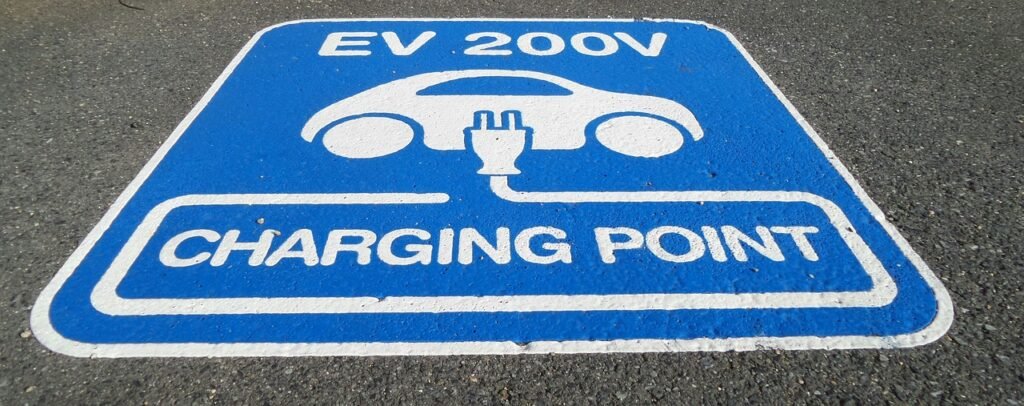
This image is property of pixabay.com.
Benefits of Home Charging
Before diving into the types of chargers, let’s first discuss the benefits of home charging for your Hyundai Ioniq 5. One of the primary advantages is the convenience it offers. By having a charging station at home, you can plug in your vehicle overnight and wake up to a fully charged car in the morning. This eliminates the need to make frequent stops at public charging stations, saving you time and ensuring your vehicle is always ready to go.
Home charging also provides cost savings in the long run. While the initial installation cost of a charging station may seem daunting, the overall cost of electricity for charging your Hyundai Ioniq 5 at home is significantly lower compared to fueling a traditional gasoline-powered car. Additionally, many energy providers offer special electricity rates for EV owners, further reducing the cost of charging at home.
Another benefit of home charging is the environmental aspect. By charging your vehicle at home, you are reducing your carbon footprint and contributing to a cleaner and more sustainable future. Plus, with more renewable energy sources being integrated into the grid, charging your Ioniq 5 at home becomes an even greener choice.
Types of Chargers for Hyundai Ioniq 5
Now that we understand the importance and benefits of home charging, let’s explore the various types of chargers available for your Hyundai Ioniq 5.
Level 1 Charger
The Level 1 charger is the most basic option for home charging. It typically comes with the vehicle upon purchase and can be plugged into a standard household outlet. While it is the slowest charging option, it is still a viable choice for those with shorter daily commutes or who have access to overnight charging.
Charging Speed
The Level 1 charger provides a charging speed of approximately 4-5 miles per hour. This means that for every hour of charging, you can expect to add around 4-5 miles to your vehicle’s range. While this may be sufficient for some drivers, others may find it too slow for their needs.
Power Requirements
To use a Level 1 charger, you will need a standard grounded outlet, preferably on a dedicated circuit. It is important to ensure that the outlet and circuit can handle the continuous load of charging your Hyundai Ioniq 5 without any safety concerns.
Convenience
One of the main advantages of the Level 1 charger is its convenience. Since it can be plugged into any standard household outlet, it provides flexibility in terms of the charging location. However, it is worth noting that charging using a Level 1 charger requires a longer charging time compared to other options. If you have time constraints or require a faster charging speed, you may want to consider alternative solutions.
Level 2 Charger
For those who require a faster charging speed, a Level 2 charger is the ideal choice. This type of charger requires a dedicated charging unit to be installed at your home.
Charging Speed
A Level 2 charger provides an enhanced charging speed compared to Level 1 chargers. Depending on the specific charging unit, you can expect a charging speed of around 20-30 miles per hour. This means that a few hours of charging can add a considerable amount of range to your Hyundai Ioniq 5.
Installation Requirements
Installing a Level 2 charger at home requires a dedicated 240-volt electrical circuit. This is typically a higher voltage than what is available in standard household outlets, so professional installation is recommended. A qualified electrician can assess your home’s electrical capacity and install the necessary circuit and charger to ensure safe and efficient charging.
Cost
The installation of a Level 2 charger may come with an additional cost, as it involves electrical work and potentially upgrading your home’s electrical panel. However, the faster charging speed and convenience it offers often outweigh the upfront cost. It is essential to consider your budget and charging needs when deciding on the right charger for your Hyundai Ioniq 5.
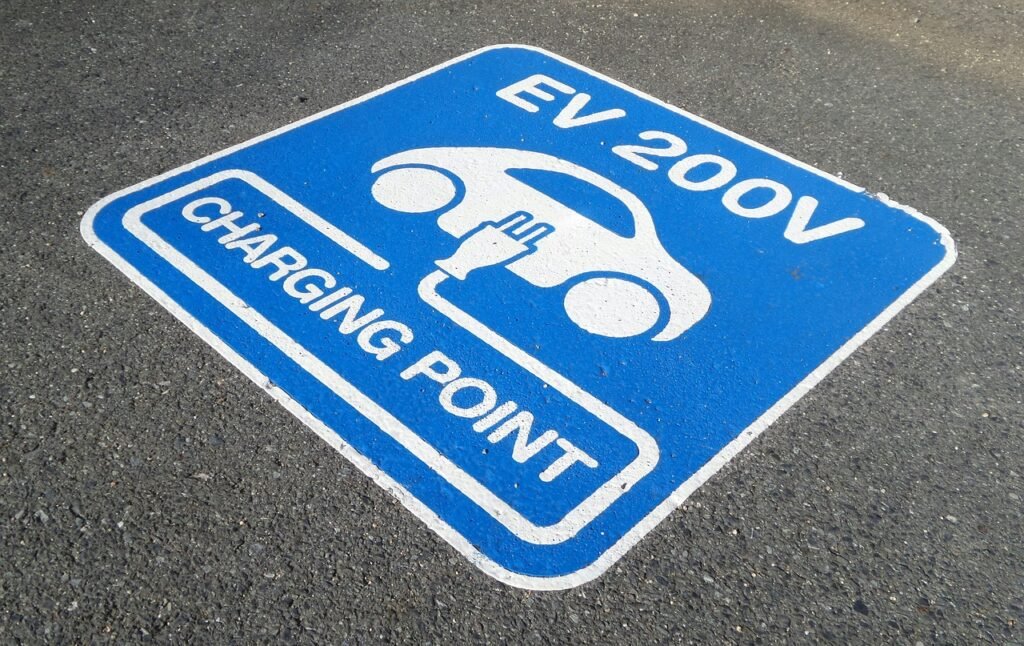
This image is property of pixabay.com.
Fast Chargers
If you require even faster charging speeds, fast chargers, also known as DC fast chargers or Level 3 chargers, are worth considering. These chargers utilize a higher voltage DC power supply to deliver a significant amount of power to your vehicle.
Charging Speed
Fast chargers can provide charging speeds ranging from 100 to 350 miles per hour, depending on the specific charger and your vehicle’s capabilities. This means you can go from a low battery to a significant charge in a relatively short amount of time.
Compatibility
It is important to note that not all electric vehicles, including the Hyundai Ioniq 5, can utilize the full charging speed of fast chargers. Some vehicles may require adapters or have limitations on the charging speed they can accept. Therefore, it is crucial to check the charging capabilities of your specific vehicle model before using a fast charger.
Availability
While fast chargers offer incredible charging speeds, they are not as widely available as Level 2 chargers or standard charging stations. These chargers are commonly found along major highways or in specific locations designated for fast charging. Considering this, fast chargers are best suited for long-distance travel or situations where a quick charge is needed.
Wallbox Chargers
Another option for home charging is a wallbox charger. Wallbox chargers are similar to Level 2 chargers, but they often come with additional smart features and functionality.
Charging Speed
Wallbox chargers offer the same charging speed as Level 2 chargers, typically around 20-30 miles per hour. This ensures a speedy and efficient charging process for your Hyundai Ioniq 5.
Installation Requirements
Similar to Level 2 chargers, wallbox chargers require professional installation and a dedicated electrical circuit. It is important to consult with an electrician to determine the specific installation requirements based on your home’s electrical capacity.
Smart Features
What sets wallbox chargers apart is their integration with smart home technology. These chargers often come with features such as scheduled charging, energy monitoring, and remote control through a mobile app. This allows you to optimize your charging schedule and monitor your energy consumption, providing a more convenient and efficient charging experience.
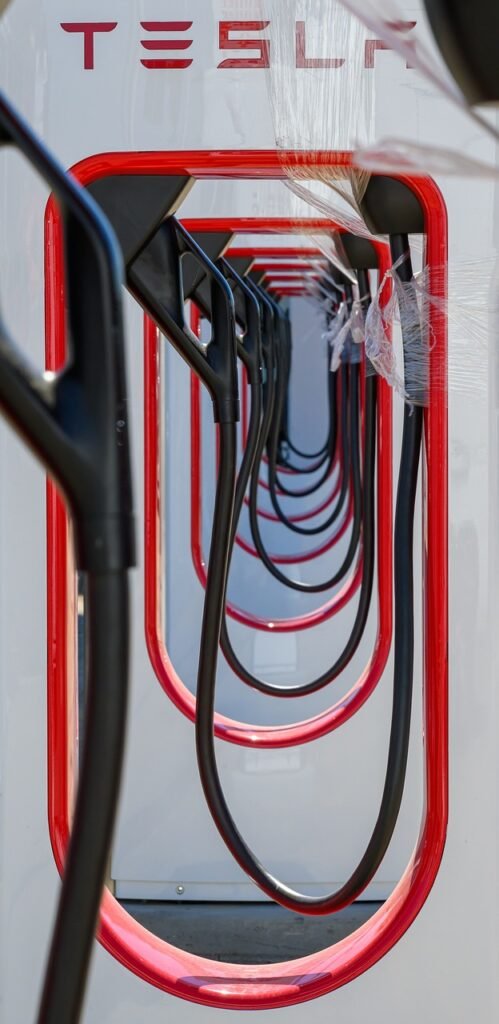
This image is property of pixabay.com.
Factors to Consider
When deciding on the right charger for your Hyundai Ioniq 5, several factors should be taken into consideration. These factors include your budget, time constraints, and the availability of charging infrastructure.
Budget
It is essential to determine your budget for home charging, considering both the upfront cost of the charger and any potential installation expenses. While Level 1 chargers may be the most affordable option, the faster charging speeds provided by Level 2 chargers or wallbox chargers may justify the additional cost.
Time Constraints
Consider your daily routine and charging needs when selecting a charger. If you have time constraints, a Level 1 charger may not provide sufficient charging speed. On the other hand, if you have longer periods of downtime, a slower charging speed may be more acceptable.
Availability of Charging Infrastructure
Evaluate the availability of charging infrastructure in your area. If public charging stations are scarce or inconvenient for your daily routine, having a Level 2 charger or wallbox charger at home becomes even more advantageous. It ensures that you always have a reliable and easily accessible charging option.
Other Charging Options
While home charging is the most convenient and cost-effective option for Hyundai Ioniq 5 owners, there are other charging options to consider.
Public Charging Stations
Public charging stations are available in various locations, including shopping centers, parking lots, and rest areas. Utilizing public charging stations can be helpful for longer trips or if you don’t have access to a home charging solution. However, it is important to be aware that public charging may come with costs and can be more time-consuming compared to charging at home.
Workplace Charging
If your workplace offers charging stations, taking advantage of this option can be a great way to keep your Hyundai Ioniq 5 charged during the day. Workplace charging allows you to maximize your vehicle’s range without relying solely on home charging.
Charging Networks
Charging networks, such as electric vehicle service providers or third-party companies, often have a network of charging stations accessible through a membership or payment system. These networks can be beneficial for longer trips or when visiting areas that may not have widespread charging infrastructure.
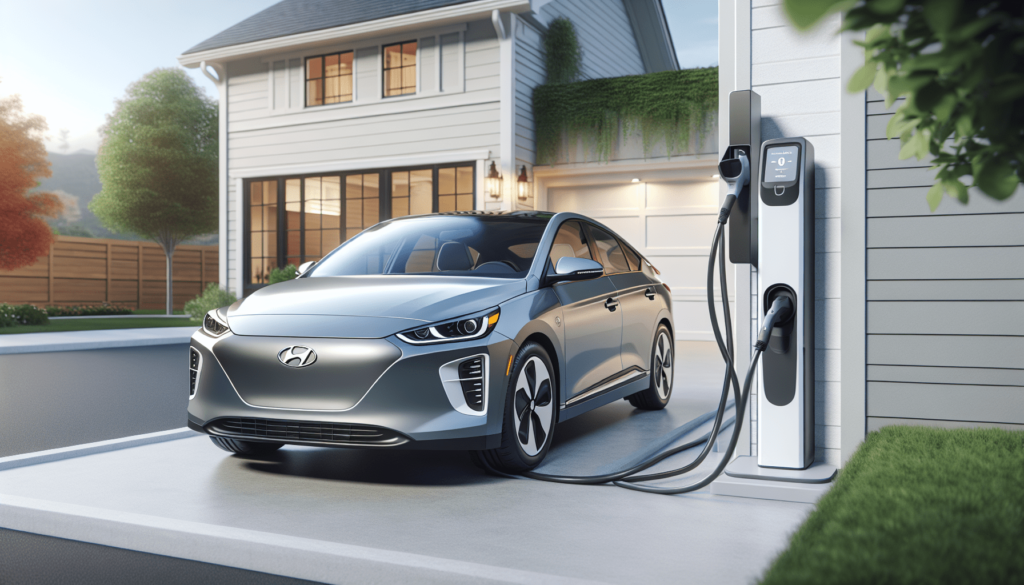
Conclusion
When it comes to charging your Hyundai Ioniq 5 at home, the options are plentiful. Choosing the right charger depends on various factors, including your charging speed requirements, budget, and installation feasibility. While Level 1 chargers offer convenience and accessibility, Level 2 chargers and wallbox chargers provide faster charging speeds and additional smart features.
By considering your lifestyle, charging needs, and long-term goals, you can select the perfect charger that seamlessly integrates into your daily routine. With home charging, you can confidently embark on your next adventure, knowing that your Hyundai Ioniq 5 will always be ready to take you wherever you need to go. Enjoy the convenience, cost savings, and environmental benefits that home charging brings – it’s a game-changer for electric vehicle owners like you.

